Michael Wybrow
BARD: A structured technique for group elicitation of Bayesian networks to support analytic reasoning
Mar 02, 2020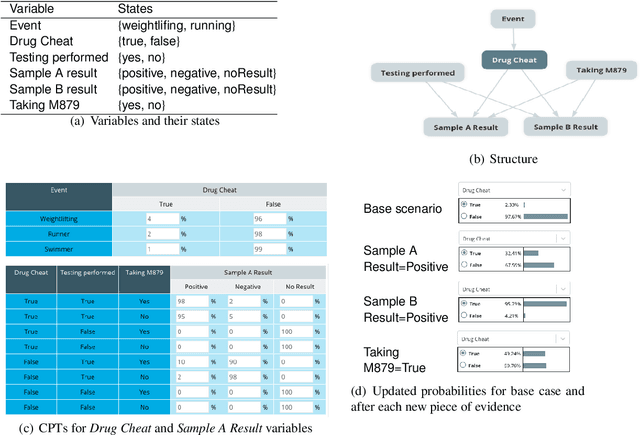
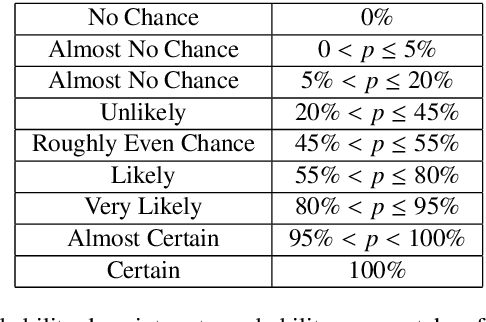

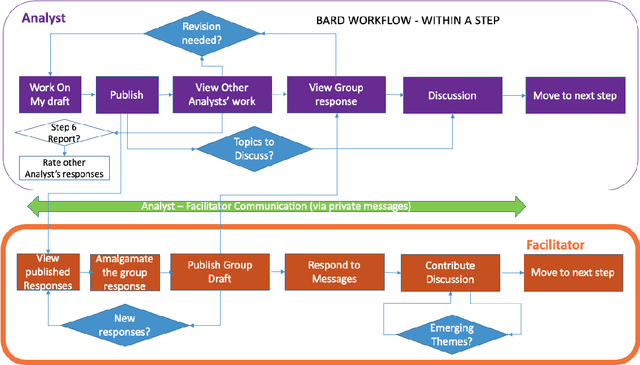
Abstract:In many complex, real-world situations, problem solving and decision making require effective reasoning about causation and uncertainty. However, human reasoning in these cases is prone to confusion and error. Bayesian networks (BNs) are an artificial intelligence technology that models uncertain situations, supporting probabilistic and causal reasoning and decision making. However, to date, BN methodologies and software require significant upfront training, do not provide much guidance on the model building process, and do not support collaboratively building BNs. BARD (Bayesian ARgumentation via Delphi) is both a methodology and an expert system that utilises (1) BNs as the underlying structured representations for better argument analysis, (2) a multi-user web-based software platform and Delphi-style social processes to assist with collaboration, and (3) short, high-quality e-courses on demand, a highly structured process to guide BN construction, and a variety of helpful tools to assist in building and reasoning with BNs, including an automated explanation tool to assist effective report writing. The result is an end-to-end online platform, with associated online training, for groups without prior BN expertise to understand and analyse a problem, build a model of its underlying probabilistic causal structure, validate and reason with the causal model, and use it to produce a written analytic report. Initial experimental results demonstrate that BARD aids in problem solving, reasoning and collaboration.
OntoPlot: A Novel Visualisation for Non-hierarchical Associations in Large Ontologies
Aug 02, 2019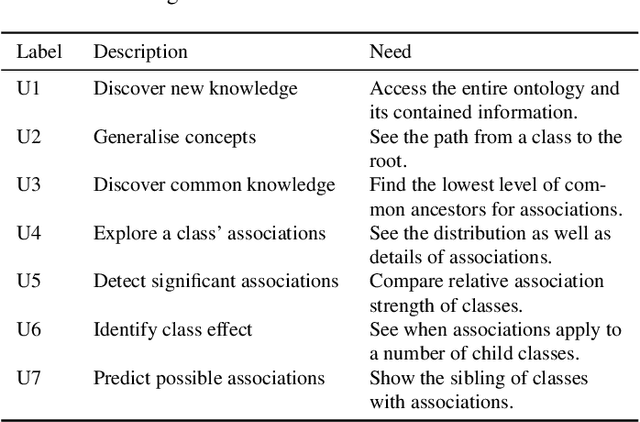
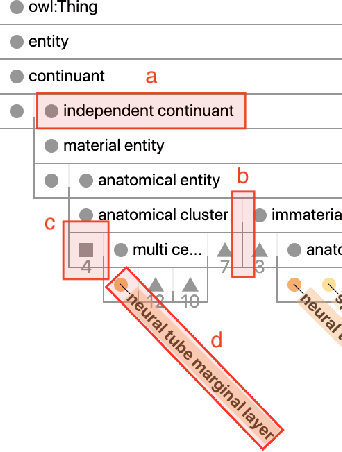
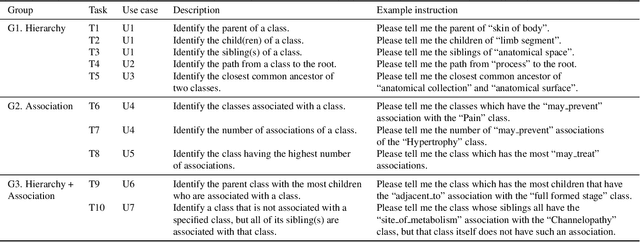
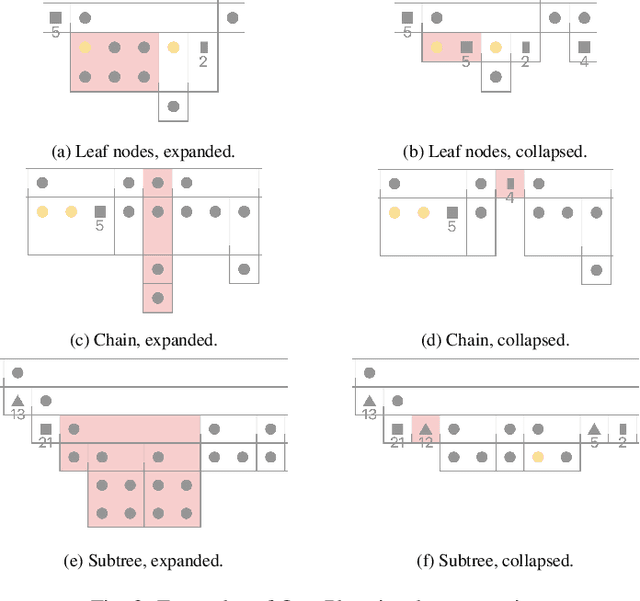
Abstract:Ontologies are formal representations of concepts and complex relationships among them. They have been widely used to capture comprehensive domain knowledge in areas such as biology and medicine, where large and complex ontologies can contain hundreds of thousands of concepts. Especially due to the large size of ontologies, visualisation is useful for authoring, exploring and understanding their underlying data. Existing ontology visualisation tools generally focus on the hierarchical structure, giving much less emphasis to non-hierarchical associations. In this paper we present OntoPlot, a novel visualisation specifically designed to facilitate the exploration of all concept associations whilst still showing an ontology's large hierarchical structure. This hybrid visualisation combines icicle plots, visual compression techniques and interactivity, improving space-efficiency and reducing visual structural complexity. We conducted a user study with domain experts to evaluate the usability of OntoPlot, comparing it with the de facto ontology editor Prot{\'e}g{\'e}. The results confirm that OntoPlot attains our design goals for association-related tasks and is strongly favoured by domain experts.
 Add to Chrome
Add to Chrome Add to Firefox
Add to Firefox Add to Edge
Add to Edge